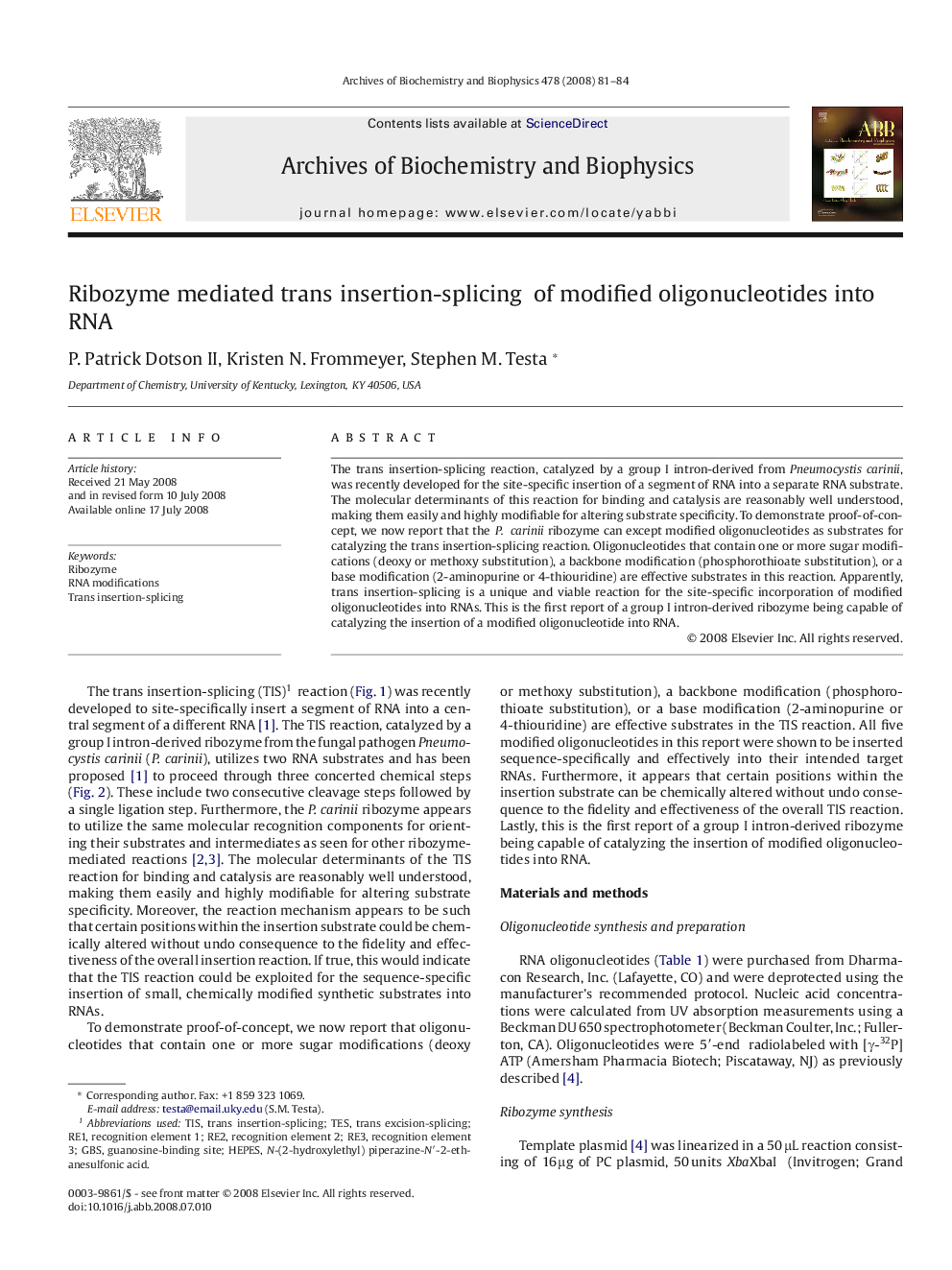| Article ID | Journal | Published Year | Pages | File Type |
|---|---|---|---|---|
| 1926642 | Archives of Biochemistry and Biophysics | 2008 | 4 Pages |
Abstract
The trans insertion-splicing reaction, catalyzed by a group I intron-derived from Pneumocystis carinii, was recently developed for the site-specific insertion of a segment of RNA into a separate RNA substrate. The molecular determinants of this reaction for binding and catalysis are reasonably well understood, making them easily and highly modifiable for altering substrate specificity. To demonstrate proof-of-concept, we now report that the P. carinii ribozyme can except modified oligonucleotides as substrates for catalyzing the trans insertion-splicing reaction. Oligonucleotides that contain one or more sugar modifications (deoxy or methoxy substitution), a backbone modification (phosphorothioate substitution), or a base modification (2-aminopurine or 4-thiouridine) are effective substrates in this reaction. Apparently, trans insertion-splicing is a unique and viable reaction for the site-specific incorporation of modified oligonucleotides into RNAs. This is the first report of a group I intron-derived ribozyme being capable of catalyzing the insertion of a modified oligonucleotide into RNA.
Keywords
Related Topics
Life Sciences
Biochemistry, Genetics and Molecular Biology
Biochemistry
Authors
P. II, Kristen N. Frommeyer, Stephen M. Testa,
